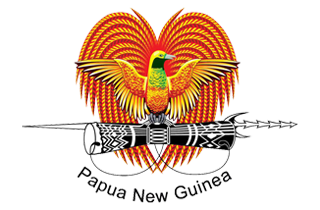Religion
- Climate of PNG
- Constitutional Framework
- Cultural Events
- Cultural Institution
- Cultural Life
- Daily Life and Social Customs
- Decolonization
- Demographic-Trends
- Finance
- Education
- Economy
- Drainage-Soil
- History
- Health-Welfare
- Housing
- Justice
- Land
- Labour-Taxation
- Local-Government
- Media-Publication
- Manufacturing
- National Anthem and Pledge
- National Politics in the 1990s
- PNG History
- People – Ethnic Groups
- Plant and Animal
- PNG Public Holidays
- Political Process
- Postcolonial Politics
- Regional Relations
- Relief
- Religion
- Services
- Settlement Patterns
- Sports and Recreation
- Trade
- Transportation &telecommunications
The majority of Papua New Guinea’s people are at least nominally Christian. More than two-fifths of the population is Protestant; Lutherans make up the largest portion of those, and there are some Anglicans and a growing number of Pentecostals. Approximately another one-fifth are Roman Catholics. Seventh-day Adventism is increasing in popularity, and there are also small numbers of Bahāʾīs and Muslims. Despite the apparent inroads made by introduced religions, much of the population also maintains traditional religious beliefs, and rituals of magic, spells, and sorcery are still widely practiced.
Postal Address:
P.O Box 422, Waigani,
National Capital District (NCD)
Papua New Guinea (PNG)
- Central Government Office, Kumul Avenue, Waigani, N.C.D
- inquiries@dfa.gov.pg
- +675 301 4100
External Links
- Goverment Departments and Agencies
- Department of Prime Minister and National Executive Council
- Department of Planning & Monitoring
- Department of Treasury
- Department of Finance
- Department of Personnel Management
- Department of Justice & Attorney General
- National Parliament of Papua New Guinea
- Immigration and Citizenship Services Authority
- Papua New Guinea Tourism Authority
- Investment Promotion Authority
- Kumul Consolidated Holdings
Subscribe to Our Newsletter to get Important News, Amazing alerts & Inside Scoops:
51
VISITORS




